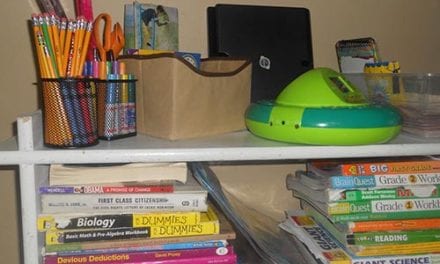The movers, as usual, were throwing expensive furniture around with reckless abandon, while Martin attempted frantically to identify which idiotic painter had decided that the living room would look good in that particular shade of dark pink.
The tenants, a Silicon Valley CEO and his inappropriately young wife, would be arriving on Monday – three days hence – to take possession of their newly refurbished home. Redecorating the entire place for a three-month rental seemed an incredible waste of money, but Martin wasn’t the one making those decisions, and as a realtor in Pimlico, he was well accustomed to extravagant requests. At least these Americans – unlike the Sheik he’d dealt with the month before – weren’t doing anything irreparable to the stately row house they’d chosen.
Which brought him back to the pink walls. His assistant, comfortably seated at her desk, kept repeating that the painters weren’t answering the phone, and that she kept getting a very irritated old lady in Kensington who swore that there had never been a housepainting firm at the number they’d been using for the entire project.
“Well, just get me any bloody painter with lots of white paint, and get him here today,” Martin replied testily, and hung up.
A scratching at the lock on the front door signaled that some other workman had decided to make an appearance. Martin swore that if it wasn’t the plumber, he would have someone killed.
An old man walked in and absent-mindedly, almost automatically, dropped his keys on an old table in the front entrance. He walked to the sitting room without even noticing Martin, and then made a beeline for the kitchen.
Martin followed him, thinking that the plumber had begun to hire elderly assistants, but stopped when he saw that the old man had begun to open the upper cabinets, as though searching for something.
“Excuse me,” Martin said.
The old man turned and gave the realtor a startled look.
“Who are you?” the man asked.
“Strange, I was about to ask you the same thing.”
“I beg your pardon!” the old man replied, seemingly offended. “I am the owner of this house, and I would like you to explain your presence here.”
The old man looked around, made a confused face, and finally pulled out a chair, into which he sat.
Martin spluttered. “I believe there must be some confusion, sir. You are not the owner of this house. I spoke to the owners just this morning.”
“I assure you, I am the owner of this house, and have been since my father was killed at Dunkirk. I was born here, and I bloody well know the place I was born in, now tell me who the hell you are, and what is the meaning of this outrage, or I shall throw you out on your ear.”
Martin stopped for a second and looked his visitor over. Up until that moment, he had simply assumed that the old man was confused, a harmless victim of extreme old age, but now, he reassessed his opponent. The suit the geezer wore had been out of fashion for decades, but was in reasonable shape – although perhaps a size too big for him. There were a couple of medals pinned to the front.
Martin relaxed. The man was just sitting there, and though his eyes showed outrage, he had little doubt that if it came to violence, even a sedentary realtor could hold his own against this old man – Martin was genuinely concerned about not hurting him.
“Sir, I’m afraid there’s been some kind of mistake. I’m Martin Bradley, what did you say your name was?”
“My name is Thomas de Terrence, and I assure you that if there’s been a mistake, it’s you that made it. This is my house.”
De Terrence? Martin’s insides turned cold.
De Terrence? That was the name he’d seen on the rental forms. “Could you excuse me a moment?” Martin asked, “I need to make a call.”
~~000~~
He returned a few minutes later to find the man holding a coffee mug and studying the counter-top dishwasher with a dejected expression. Before Martin could say anything, the man spoke. “Can you make me a cup of tea? I’ve been having a most bewildering day. Do you know there are workmen in the sitting room? I believe none of them speak any English.” He handed Martin the mug and sat heavily on the chair. “They woke me out of my coma with tea, some kind of horrible concoction called Zelda Breath, made in the states, some town called Inwood, Indiana. They woke me, and then told me I was fit to leave the hospital, but the truth is, I still feel terribly weak.”
Martin held the mug for a second, unsure of what to do, and then shrugged. It wouldn’t hurt to get the old man some decent tea. He made the necessary preparations in silence.
“Sugar?”
“Don’t be daft, man. I said tea, not some child’s sweet.”
Martin handed over the cup, waited for a curt nod, and then sat down in front of him. “Sir, I need to ask you something. Or perhaps, I need to tell you something.”
“Out with it.”
“I’ve verified that the house does, in fact, belong to you.”
“Of course, I’d be quite mad to claim it did if it didn’t, wouldn’t I?”
Martin smiled. “I suppose you would. But there is a problem. While you were in hospital, your family has rented the house to a certain number of tenants.”
“Tenants? In my father’s house? That is unacceptable. How many?”
“Quite a few, I’m afraid. You were in hospital for a long time.”
“Yes, it was quite a shunt.”
“You remember how you were injured?” Martin knew that, often, with head trauma, the patient could forget the circumstances leading up to it. Or at least that is what the movies he saw hinted at.
“We were giving the Yanks a hand with the Airlift. My first mission, as I was too young to fly in the war. We were stationed in Germany at the time. Had a load of white wine or cigarettes or something – it was one of the morale runs, not a regular food lift. Number two engine cut out on liftoff, and I couldn’t get the nose up past the trees. I even remember hitting the ground when we came out of the branches. Yes, quite a shunt.”
“The Airlift?” Martin wondered aloud. Then, incredulous, “The Berlin Airlift?”
“Of course! Which other could I be referring to?”
“But that was in… 1946?”
“1949, at least the bit I was in was. But how can you not know that?” The old man looked around. “Well, I guess the years after the war have been busy. Rebuilding. So much has changed, even the tube. I finally gave up trying to understand how to pay for my trip and jumped the turnstile. Can you imagine?”
“Oh, yes, I can imagine it.” Martin paused. “Listen, did anyone at the hospital tell you how long you’d been inside?”
“Yes, they warned me that a number of years had passed. They told me I had been in a coma. They gave me a large amount of money, too.”
“But did they tell you how many years?”
“No.” Thomas looked into his tea. “I was afraid to ask. I came into the hospital a young man, and when I woke, everything seemed so different. There were boxes of lights, and music piped in from nowhere. I am smart enough to know that it must have been quite a while. What if they’d told me that ten years had passed? Or fifteen?”
“Sir… I am really not the person you should be talking to. Can I call the hospital?”
Suddenly the old man’s eyes came alive. The intelligence that had been hidden was in them, clearly visible, as was something different. They were hard eyes, uncaring, something you might see in a gang member, not the civilized owner of a London Row house. “You don’t want to tell me.”
Martin simply shook his head.
“Come on, man,” Thomas spat. “Get yourself together. I was willing – expecting actually, with the way things were going for a while – to die for my country. And that means that I am man enough to take a hard truth. Now talk.”
Martin was a young man, raised by a middle-class family. He was coddled, made to believe he was a special snowflake in a safe world. No one had ever given him an order in that tone of voice, and he had no choice. “The year is 2013, sir.”
“2013…” The old man paused, stunned.
He stayed silent for some moments, which stretched out to minutes. Martin hardly dared to breathe as he watched the old man. Was Thomas doing arithmetic, trying to figure out his age? Was he simply thinking of a life, gone in the blink of an eye?
Finally, Thomas spoke. “No wonder I was feeling so weak.” And then he lapsed back into silence.
Martin didn’t know what to do. What did one say in these situations? If the old man took it badly, he might hurt himself, might become difficult to control. Now, he was sitting quietly at a table, taking an occasional sip of tea, but what if he went insane with the unfair cards that life had dealt him? Anyone would be right to be enraged at the news.
The old man looked him in the eye and then chuckled softly.
Martin braced for the explosion.
But it didn’t come. The chuckle softly subsided, and the old man grinned at him, resigned, but sane.
“More than sixty years, and quite a few tenants” he said. “And in all that time, no one thought to change the lock on the front door?”




















